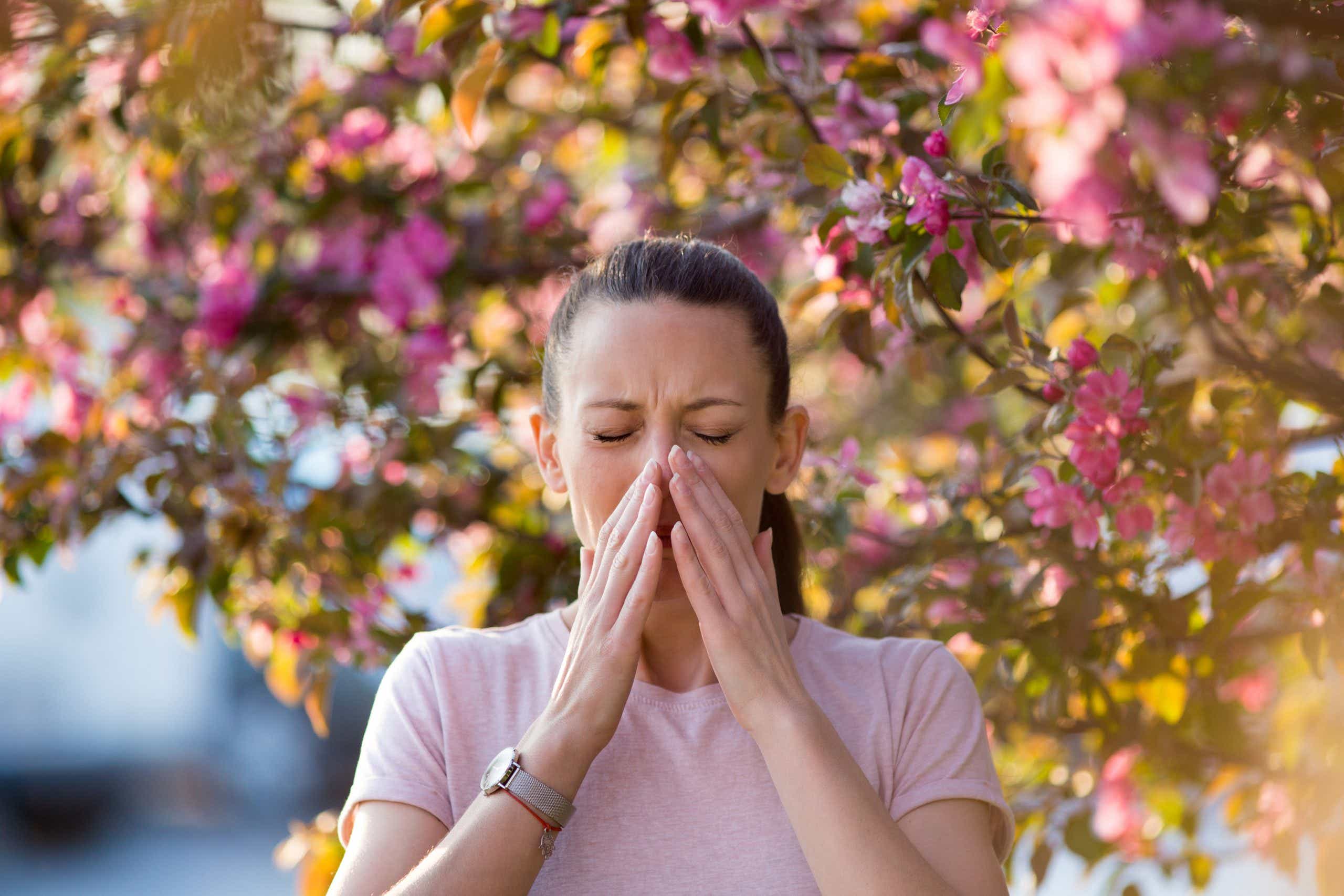For all the great things that spring brings—blooming flowers, later sunsets, and the chance to finally put that winter coat away for good—it also marks a less happy occasion for millions across the country: allergy season. You’re far from alone if you’re suffering from symptoms like itchy eyes and stuffy nose this time of year, says Dr. Reena Mehta, an allergist and immunologist in New Orleans. Below, Dr. Mehta explains how allergies differ depending on where you live, what products might help alleviate your symptoms (all of which can be purchased at Walmart!), and what to do if medication stops working.
KCM: What are the most common allergies people might be facing right now?
Dr. Mehta: Spring is when the trees start to bloom and pollen starts to come loose. Tree pollen is the biggest allergen that you'll find in the springtime—especially on the hot, humid, and windy days, when more pollen drifts in the air. Humidity allows the proliferation of dust mites and mold. On windy days, the pollen can fly around and cause irritation. If it rains, there's more moisture, humidity, and dampness, which increases the chance that mold and dust, which are also allergens, will grow.
And how do we react to those allergens? What are the symptoms that things like pollen, dust mites, and mold cause?
When I think of the hallmark features of allergies, the first thing that comes to mind is itchiness: itchy eyes, itchy skin, itchy nose. Other allergy symptoms can be nasal congestion, so you feel stuffy in your nose; sinus headaches or pressure; postnasal drip, which includes mucus in the throat; coughing; and itchy, watery, red eyes.
Allergy symptoms can change year to year. You don't typically outgrow the allergy, but the severity can change. Just because you don't have a bad season one year doesn't mean the next year is going to be the same.
How might your allergies differ based on where you live?
Allergies are typically more cyclical in places where there are seasons. Where I used to practice in the Northeast, we had tree pollen in the spring. Then in the summer, it was grass pollen, and in the fall it was weeds. In the wintertime—when more people are indoors, it's colder outside, and you turn on your heat—more people are affected by dust mites. In the South, it's pretty humid and it can be warm year-round, so you get a mixed bag. You can certainly have tree pollen in the fall and you can have ragweed in the spring. We don't typically have seasons, so you can have more spread out allergens in the South.
Allergens also differ by region. Places like Arizona probably have more of an issue with dust than pollen, but then you can go to Denver, and there’s trees and pollen everywhere. And here where I am in New Orleans, it's a lot of mold, dust, and roaches.
If you move somewhere new, will your allergies stay the same?
There's probably some overlap. Dust mites are dust mites, and it doesn't matter where you are. Typically, when you move to a location that's geographically different, it takes about two to three years to be in that seasonal environment to develop the new allergens that you didn't previously have. And your sensitivities can change, too. So let's say in Chicago, for example, you had a dust mite allergy or mold allergy, but it's seasonal—you’re not seeing it year-round. If you move to a place where that allergen is more predominant, like Louisiana or Florida, you may be more symptomatic earlier.
Let’s hear some product recommendations! What types of products do you recommend for people with itchy eyes? What do you recommend for someone suffering from bad congestion and a lot of sneezing?
If I hear somebody’s biggest symptom is that they have a stuffy nose and are congested, the first thing I'll think about is using an over-the-counter nasal spray such as Flonase or Nasacort. If someone’s biggest symptom is itchy, teary, watery eyes, I would recommend an over-the-counter allergy eye drop such as Zaditor. And if they have general allergy symptoms—they're sneezing, they're congested, they have itchy skin, and it's more of a systemic response—then I like over-the-counter Zyrtec, Allegra, or Xyzal. Sometimes you can get asthma from allergies, which is a respiratory issue, and then we talk about inhalers. At that point, a patient should probably see an allergist or their doctor.
How often do people report that their allergy medications “stop working”? Should people switch up or rotate their allergy meds?
If you've been on a certain allergy medication for a couple of years and you are not finding it to be as effective anymore, then changing it to something different can often help. If I meet someone who's been on three or four allergy medications and they're just not getting the relief that they need, they may be a candidate for allergy shots. Allergy shots are a series of injections to figure out what someone is allergic to and to start desensitizing them to those allergens through injection. Through teeny tiny doses over time, the goal is to essentially shift the immune response from thinking it's allergic to building a tolerance. It's a time consuming process, but typically patients have a ton of improvement in their symptoms and they don't need all those medications anymore.












